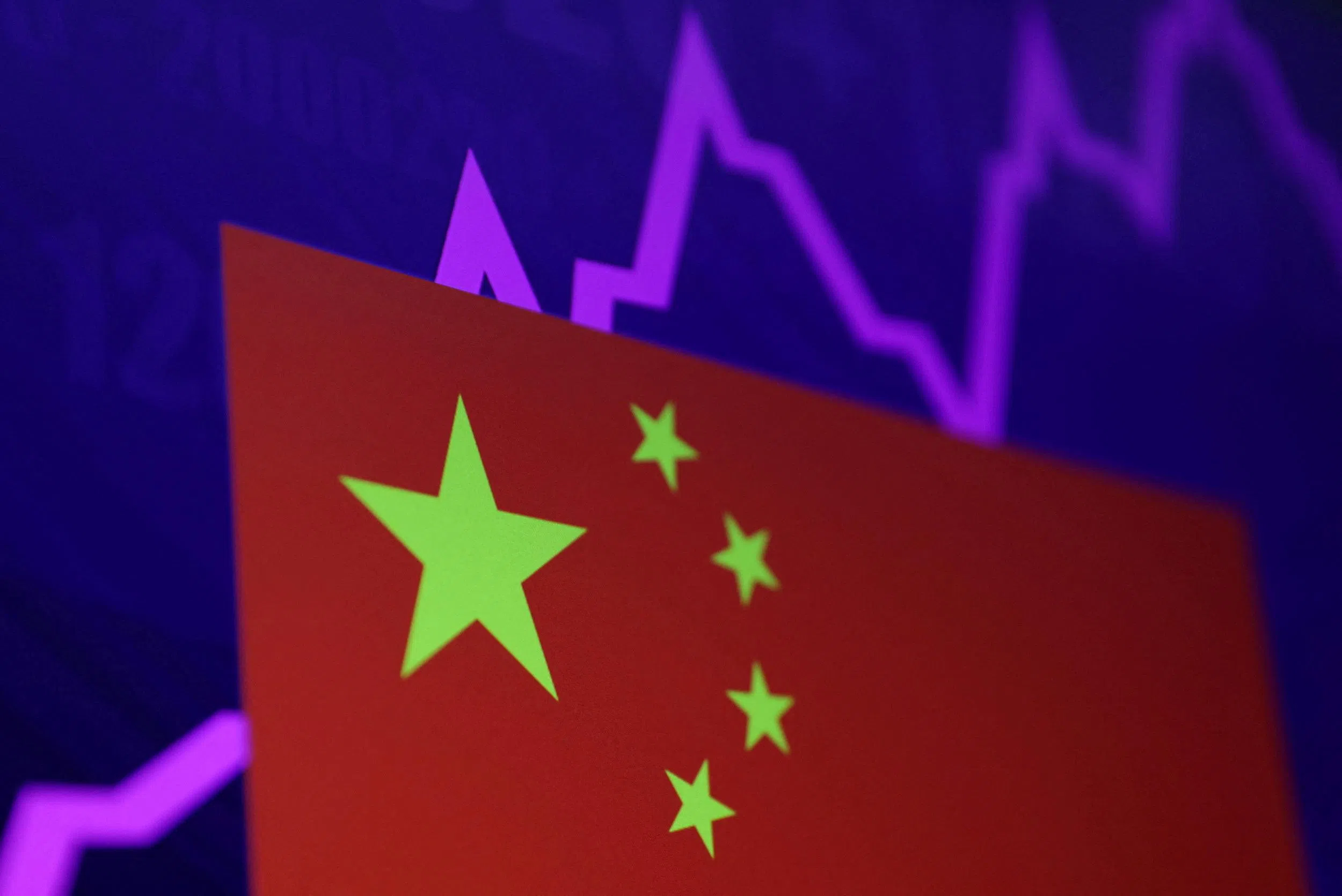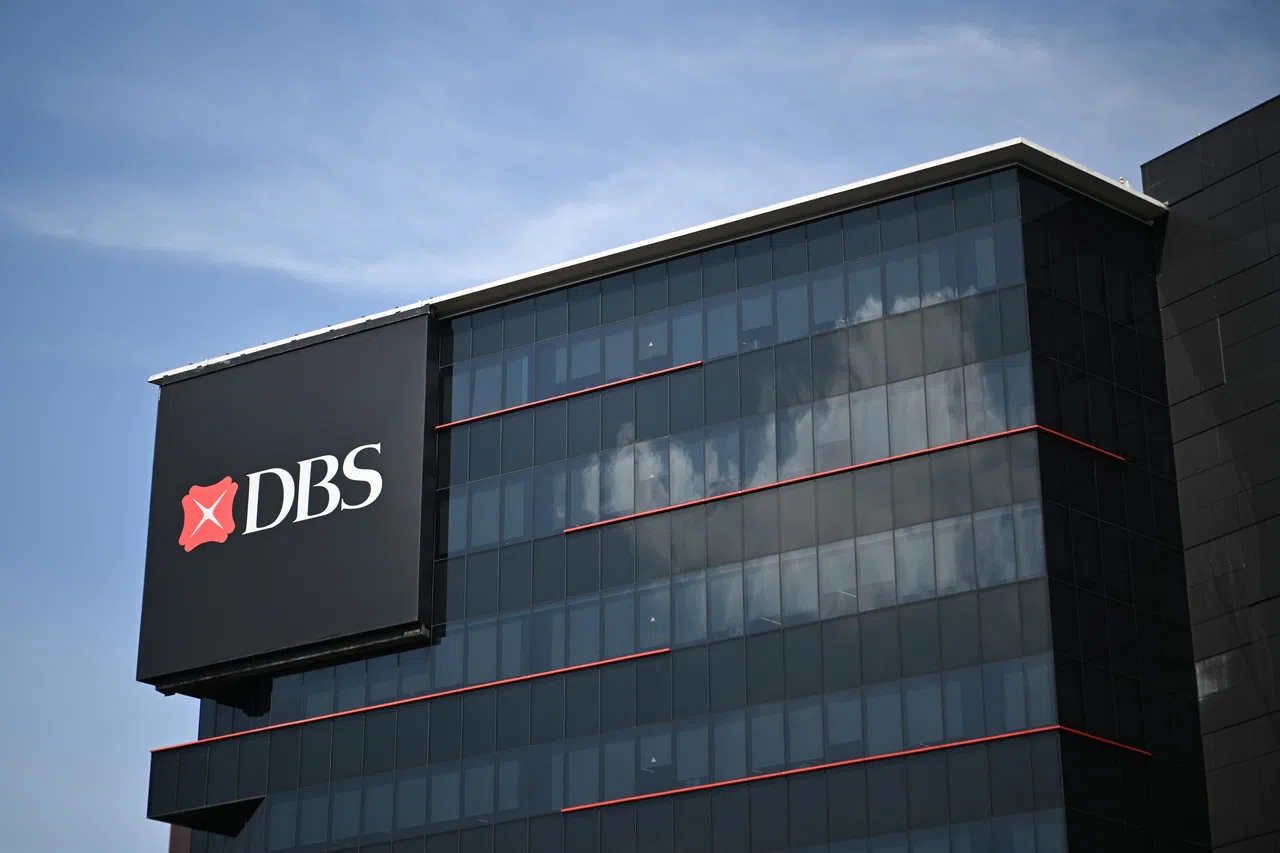CHINESE equities were standout underperformers in Asia on Wednesday (Oct 9) as traders weighed weak economic data and Beijing’s reluctance to commit to more stimulus.
The benchmark CSI 300 Index tumbled as much as 7.4 per cent, but regained some of its losses on a report China will hold a briefing on Saturday about fiscal policy. Chinese markets had surged on Tuesday when they returned from the Golden Week holiday.
US equity futures also slipped following a report that the US Justice Department was weighing a breakup of Google. Ten-year Treasury yields hovered around the key 4 per cent mark and oil steadied after tumbling the most in more than a year.
Concerns in China have mounted that the latest burst of stimulus may be insufficient to convince investors of a sustainable rally in the equity market. Chinese tourists shelled out less money during their long holiday while a news report indicated the nation needs to introduce policies to stabilise growth and expectations. That’s a further sign Beijing is attempting to build confidence among investors.
“For the markets to sustain enthusiasm, far more aggressive gestures for the new fiscal package or market stabilisation mechanism might be necessary,” said Homin Lee, senior macro strategist at Lombard Odier. “It’s possible that these gyrations persist until the National People’s Congress Standing Committee meeting and also the US election in early November.”
The National Development and Reform Commission (NDRC), China’s economic planning agency, announced that a meagre 200 billion yuan (S$37 billion) in spending would be advanced from next year, after analysts estimated a fiscal package worth as much as three trillion yuan in the pipeline.
BT in your inbox
Start and end each day with the latest news stories and analyses delivered straight to your inbox.
A gauge of Asian shares fell for a second session on Wednesday with stocks in Hong Kong falling more than 3 per cent.
Confidence in the bull run in China is fading “just as rapidly as it had momentum not long ago,” said Hebe Chen, an analyst at IG Markets.
A growing number of strategists and fund mangers have in recent days expressed scepticism about the rally, saying Beijing needs to back up its spending pledges with real money. Some are also concerned that many stocks have already reached overvalued levels.
“No further policies from the NDRC yesterday has disappointed the market,” said Steven Leung, executive director at UOB Kay Hian Hong Kong. “Volatility is likely to continue into fourth quarter, but liquidity will come back, wait for pull back to jump in, especially from those overseas institutions who have been very underweight greater China.”
In corporate news, Alimentation Couche-Tard sent Seven & i Holdings a new potential acquisition price of 7 trillion yen (S$61.4 billion), showing that the Canadian company is still seeking to enter takeover talks after its initial bid was rejected. The Japanese company’s shares surged as much as 12 per cent.
Elsewhere in Asia, New Zealand’s dollar and bond yields fell after the nation’s central bank delivered a 50 basis-point cut on its benchmark rate, while the Reserve Bank of India left rates unchanged. The RBI changed its monetary policy to neutral, sending shares higher. South Korea will join FTSE Russell’s benchmark bond index, capping months of official campaigning and a overhaul of financial market infrastructure.
US rate-cut expectations
Fed Bank of Boston president Susan Collins noted that rate cuts should be careful and data-based. Her Atlanta counterpart Raphael Bostic said while risks to inflation have come down, threats to the labour market have risen, though the economy is still strong. Governor Adriana Kugler said officials should keep the focus on bringing inflation to target, with a “balanced approach” that avoids a slowdown in jobs.
“The US data is not so strong that the Fed’s contribution to the global rate-cutting cycle looks set to end,” said Mark Haefele at UBS Global Wealth Management. “We therefore maintain our conviction for investors to position for lower rates.” BLOOMBERG







